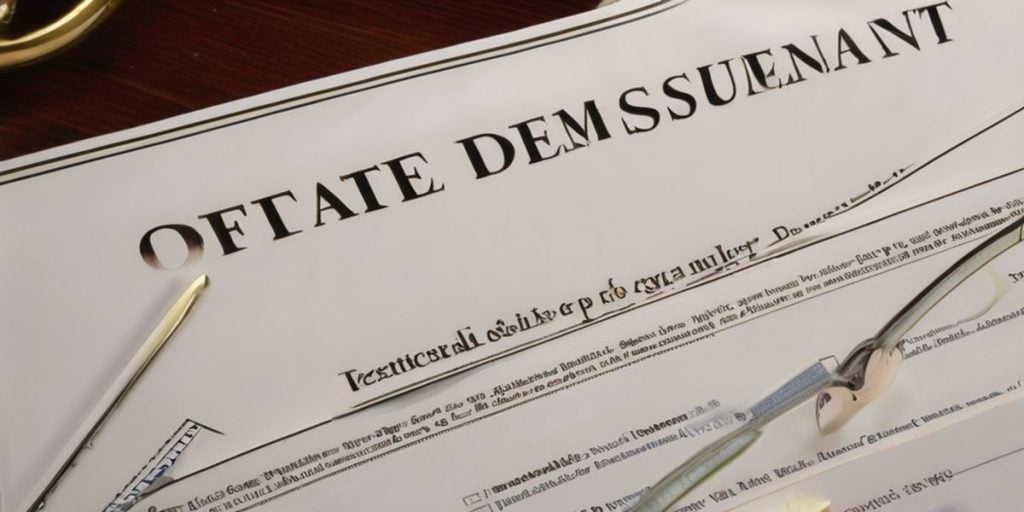Estate lawyers play a pivotal role in ensuring the seamless execution of a person’s final wishes regarding the distribution of their assets. Delegation 101 for estate lawyers is an essential guide that provides insights into the multifaceted responsibilities of estate lawyers, the importance of estate planning, and the strategies for effectively managing both the legal and financial aspects of an estate. This article explores key strategies for estate lawyers to delegate tasks efficiently, maintain work-life balance, and navigate the complexities of estate management and disputes.
Key Takeaways
Estate lawyers must fulfill various duties to the court and manage property effectively, including sending legal notices, inventorying assets, resolving creditors’ claims, and making distributions.
Estate planning is crucial to ensure that a person’s final wishes are honored, and involves creating essential documents like wills, trusts, and powers of attorney, with professional help advised.
Delegation is key to productivity for estate lawyers, requiring clear definition of tasks, empowering team members, and avoiding micromanagement to ensure successful outcomes.
Managing estate assets and liabilities involves careful inventory and appraisal, addressing creditors’ claims diligently, and distributing assets in accordance with legal requirements.
Effective communication and coordination with financial advisors, family, and beneficiaries are vital, as is handling challenges and disputes, such as defending the will and negotiating settlements.
Understanding the Role of Estate Lawyers

As an estate lawyer, your role is multifaceted, involving intricate duties that require a keen understanding of legal and financial matters. You are the steward of your client’s final wishes, ensuring that their estate is managed and distributed according to their directives.
Duties with the Court
Your responsibilities to the court are critical. They include:
Sending out legal notices
Inventorying the estate’s assets
Resolving creditors’ claims
Petitioning the court as necessary
Providing accountings and receipts
Making disbursements and distributions
These tasks are essential to the probate process, which can be complex and costly. It’s imperative to guide your clients through the creation of legal documents that can mitigate these challenges.
Duties as to Property
As to estate property, your duties are to safeguard and manage the assets until they are ready for distribution. This involves:
Appraising property value
Protecting assets from loss
Ensuring proper insurance coverage
Managing real estate or business interests
It is your responsibility to maintain the integrity of the estate, balancing legal obligations with the expectations of beneficiaries.
What is a Personal Representative?
A personal representative, often an executor, is appointed to carry out the directives of a will. While executors cannot formally assign or delegate their fiduciary duties, they can seek assistance from professionals like you. Your expertise is invaluable in navigating the legal intricacies and financial responsibilities that come with managing an estate.
Remember, changes in your client’s life or the law can necessitate updates to their estate plan. Regular reviews with your clients are essential to ensure their estate plan remains effective and reflective of their current wishes.
The Essentials of Estate Planning

Why Do Estate Planning?
Estate planning is not just about drafting a will; it’s about ensuring that your property and healthcare are managed according to your wishes in the event of disability or death. It’s about protecting your legacy and providing for your loved ones. Consider the implications of not having a plan: your assets may not be distributed as you would have wanted, and your healthcare decisions could be left to strangers.
Important Considerations in Estate Planning
When you embark on estate planning, you must consider a variety of factors to ensure that your plan reflects your desires and needs. These include the selection of a trustworthy executor, the care for minor children, and the management of your digital assets. Here’s a quick checklist to guide you:
Selection of an executor or trustee
Care for minor children or dependents
Management of digital assets
Understanding tax implications
Regular updates to reflect life changes
Estate Planning Documents
A comprehensive estate plan includes a range of documents to cover all aspects of your estate. These documents serve as the foundation for ensuring your wishes are honored. Below is a table summarizing the key documents you should consider:
Document Type | Purpose |
|---|---|
Wills | Dictate asset distribution |
Trust Agreements | Manage assets during/after life |
Powers of Attorney | Authorize others to act on your behalf |
Living Wills | Express healthcare wishes |
Remember, while you can find resources online or through various organizations, the value of professional legal advice cannot be overstated. > A well-drafted and properly executed estate plan can save your beneficiaries time, money, and stress after you’re gone.
Navigating Legal and Financial Aspects

Professional Help
When you’re dealing with the complexities of estate planning, seeking professional help is crucial. A qualified estate lawyer can guide you through the legal maze, ensuring that your documents are in order and your wishes are clearly articulated. Here’s a quick overview of services you might need:
Trust creation and management
Estate tax planning
Remember, the right professional can make all the difference in safeguarding your legacy.
Self Help Risks
While it’s tempting to cut corners and handle estate planning on your own, the risks can be significant. Mistakes in legal documents can lead to disputes or even invalidate your intentions. Consider these common pitfalls:
Misunderstanding legal requirements
Overlooking tax implications
Failing to update documents
To avoid these, always consult with a professional, even if you’re using self-help resources.
Prioritize Work-Life Balance
In the midst of estate planning, it’s easy to become overwhelmed. Prioritize your work-life balance to maintain your well-being. Schedule regular breaks, delegate tasks when possible, and remember to take time for yourself and your family. This balance is essential for making clear-headed decisions about your estate.
Estate planning is a marathon, not a sprint. Take the necessary steps to ensure your peace of mind throughout the process.
Effective Delegation Strategies

Delegate Effectively
To maximize productivity and empower your team, effective delegation is crucial. Identify tasks that can be delegated, select the right personnel, and provide clear instructions along with the necessary resources. Trust in your team’s capabilities and avoid micromanaging to allow ownership of their work. Remember, delegation is not just about offloading tasks; it’s about creating a more efficient workflow and enhancing sales productivity.
Identify tasks suitable for delegation
Empower your team by providing autonomy
Select the right personnel for each task
Automate processes where possible
Leverage technology to monitor performance
Effective delegation requires a balance between providing guidance and trusting your team to deliver results.
Empowerment through Delegation
Empowerment is a key outcome of effective delegation. By entrusting your team with responsibilities, you foster a sense of ownership and encourage professional growth. This approach not only benefits the individual but also strengthens the team’s overall capabilities.
Clearly define roles and responsibilities
Set achievable goals and deadlines
Offer support and resources
Encourage open communication
Recognize and reward achievements
Avoiding Micromanagement
Micromanagement can stifle creativity and motivation. As an estate lawyer, it’s important to strike the right balance between oversight and autonomy. Provide clear expectations and the tools needed for success, but allow your team the space to innovate and problem-solve independently.
Set clear expectations
Trust your team’s expertise
Encourage independent problem-solving
Provide feedback and constructive criticism
Regularly review and adjust delegation strategies
By following these strategies, you can ensure that your team is not only productive but also motivated and engaged in their work.
Managing Estate Assets and Liabilities

Inventory and Appraisal
As an estate lawyer, your first step is to collect and inventory all assets of the estate. This includes tangible items like property and intangible assets such as stocks and bonds. Ensure each asset is appraised to determine its fair market value, which is crucial for equitable distribution and tax purposes.
Collect assets, including those in a safe deposit box
Obtain valuations and appraisals
It’s imperative to manage and insure assets during probate to preserve their value.
Resolving Creditors' Claims
Dealing with creditors is a delicate part of estate management. You must notify creditors of the decedent’s passing and settle valid claims. This process involves:
Defending claims against the estate
Paying off debts
Ensuring no new debts are incurred
Remember, prioritizing claims is essential as some debts have legal precedence over others.
Asset Distribution
Finally, the distribution of assets must be handled with care. This step is guided by the Will or state statute if no Will exists. Transfer assets like stocks and bonds, and distribute the estate to heirs or beneficiaries. Consider the following questions:
Can a minor child’s inheritance be paid out over time?
Who should administer the estate?
How do prenuptial agreements impact distribution?
By addressing these concerns, you ensure a smooth transition of assets to the rightful recipients.
Communication and Coordination

Effective communication and coordination are pivotal in managing an estate. As an estate lawyer, you must navigate through various interactions with courts, financial advisors, and family members to ensure a smooth process.
Legal Notices and Court Petitions
Ensure timely and accurate filing of all legal notices and court petitions.
Maintain a record of submissions and deadlines in a centralized system.
Collaboration with Financial Advisors
Establish a partnership with financial advisors to align on estate financial strategies.
Share relevant information through secure channels to maintain client confidentiality.
Family and Beneficiary Engagement
Facilitate open and clear communication with family members and beneficiaries.
Organize meetings and provide regular updates to keep all parties informed and involved.
Embrace asynchronous communication to accommodate different schedules and time zones, enhancing overall efficiency.
Remember, addressing communication challenges such as time zones, language barriers, and technology issues is crucial for maintaining trust and accountability within the team.
Handling Challenges and Disputes

Defending the Will
In your role as an estate lawyer, you may encounter situations where the validity of a will is questioned. Be prepared to defend the will against challenges such as undue influence, lack of capacity, or improper execution. Gather evidence, witness testimony, and expert opinions to support the will’s legitimacy.
Addressing Contested Claims
When beneficiaries or creditors contest claims against the estate, it’s essential to navigate these disputes with tact and legal acumen. Evaluate the merits of each claim and consider negotiation or mediation as alternatives to court proceedings. Ensure fair and equitable treatment of all parties involved.
Negotiating Settlements
Negotiating settlements can be a delicate process, requiring a balance between the interests of the estate and those of the disputing parties. Aim to reach agreements that are satisfactory to all sides, while protecting the estate’s assets. Use structured negotiation techniques and document all agreements carefully.
When faced with challenges and disputes, remember that your goal is to resolve conflicts in a way that honors the decedent’s wishes and upholds the integrity of the estate.
Frequently Asked Questions
What are the key duties of estate lawyers with respect to the court?
Estate lawyers, as executors or administrators, have several duties to the court including sending out legal notices, inventorying estate assets, resolving creditors’ claims, petitioning the court as needed, providing accountings and receipts, and making disbursements and distributions.
Why is estate planning important?
Estate planning is crucial for ensuring that your property and assets are distributed according to your wishes after your death. It helps in minimizing taxes, avoiding probate, and providing for your family’s financial security.
What documents are typically involved in estate planning?
Estate planning documents often include wills, trust agreements, powers of attorney, living wills, beneficiary designations, buy-sell agreements, and deeds to transfer real estate to trusts, among others.
What is a personal representative, and what is their role?
A personal representative, such as an executor or administrator, is responsible for managing and distributing a deceased person’s estate in accordance with their will or state law if there is no will.
Should I seek professional help for estate planning?
Yes, it is advisable to seek legal help from an experienced attorney for creating your estate plan, as they can provide precise and clear drafting of documents. Other professionals such as accountants and financial planners may also be involved in the process.
Can I handle estate planning on my own without a lawyer?
While self-help resources are available, it is recommended to have a well-thought-out plan drafted and reviewed by an attorney to avoid potential enforceability issues after death and to ensure all aspects of the estate are properly addressed.
